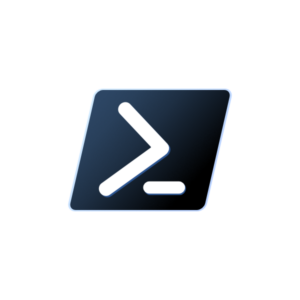Why Use PowerShell?
PowerShell has become an indispensable tool for IT professionals, system administrators, and even developers. But what makes it so special, and why should you consider using it? Let’s explore the compelling reasons to embrace PowerShell in your daily work.
- Powerful Automation Capabilities
PowerShell excels at automating repetitive tasks. Whether you’re managing servers, configuring systems, or handling large datasets, PowerShell can streamline these processes. By creating scripts, you can automate complex workflows that would otherwise take hours to complete manually, saving time and reducing human error.
- Consistent Management Across Microsoft Ecosystems
As a Microsoft product, PowerShell integrates seamlessly with Windows, Azure, Office 365, and other Microsoft technologies. This consistency allows for efficient management across various Microsoft platforms, making it an invaluable tool for administrators working in Microsoft-centric environments.
- Object-Oriented Approach
Unlike traditional command-line interfaces that work with text output, PowerShell operates on objects. This object-oriented nature allows for more sophisticated data manipulation and analysis. You can easily pipe complex data structures between commands, enabling more powerful and flexible scripting capabilities.
- Extensive Built-in Cmdlets and Modules
PowerShell comes with a vast array of built-in cmdlets (pronounced “command-lets”) that perform specific functions. These cmdlets cover a wide range of administrative tasks, from file system operations to network configuration. Additionally, you can extend PowerShell’s functionality by importing modules, either from Microsoft or third-party sources.
- Cross-Platform Compatibility
With the introduction of PowerShell Core (now known as PowerShell 7+), you can run PowerShell scripts on Windows, macOS, and various Linux distributions. This cross-platform support makes PowerShell an excellent choice for managing heterogeneous environments.
- Strong Community and Resources
PowerShell has a large, active community of users and developers. This means you can find extensive documentation, tutorials, forums, and third-party modules to help you solve problems and extend PowerShell’s capabilities.
- Integration with .NET Framework
PowerShell is built on the .NET Framework, allowing you to leverage .NET classes and methods directly in your scripts. This integration provides access to a vast ecosystem of .NET libraries and functionalities.
- Remote Management Capabilities
PowerShell’s remoting features allow you to execute commands and scripts on remote machines securely. This capability is crucial for managing distributed systems and cloud infrastructures efficiently.
- Improved Scripting and Debugging
PowerShell offers robust scripting capabilities with features like functions, error handling, and debugging tools. The PowerShell Integrated Scripting Environment (ISE) and Visual Studio Code with PowerShell extension provide excellent environments for writing and debugging scripts.
- Preparation for Cloud and DevOps
As organizations move towards cloud computing and DevOps practices, PowerShell skills become increasingly valuable. Many cloud platforms, including Azure, offer PowerShell modules for management, making it an essential skill for cloud administrators.
- Customization and Extensibility
PowerShell allows you to create custom cmdlets, functions, and modules tailored to your specific needs. This extensibility means you can build tools and utilities that perfectly fit your organization’s requirements.
- Improved Security Features
PowerShell includes security features like execution policies and code signing, which help prevent the execution of malicious scripts. It also provides detailed logging capabilities, aiding in security auditing and troubleshooting.
PowerShell’s combination of automation capabilities, object-oriented approach, and extensive integration with Microsoft technologies makes it an invaluable tool for IT professionals. Its ability to simplify complex tasks, improve efficiency, and provide consistent management across diverse environments positions it as a must-have skill in the modern IT landscape. Whether you’re managing a small network or a large enterprise infrastructure, PowerShell can significantly enhance your productivity and effectiveness. As technology continues to evolve, the importance of PowerShell in system administration, cloud management, and DevOps practices is only likely to grow.

Leave a Reply
Want to join the discussion?Feel free to contribute!